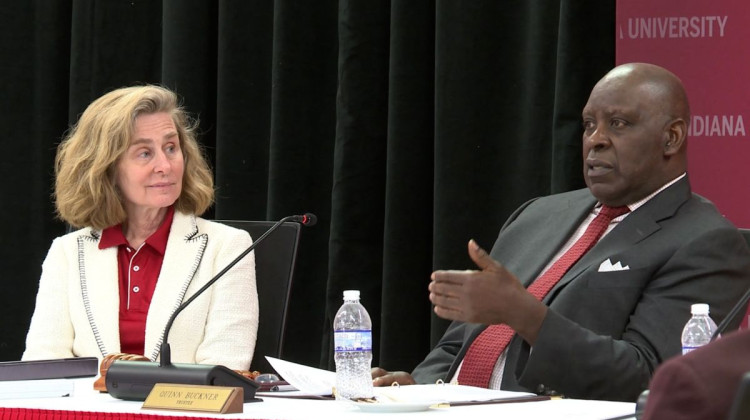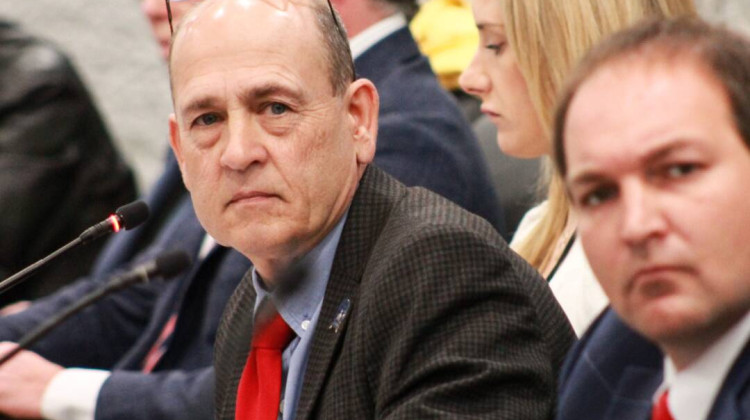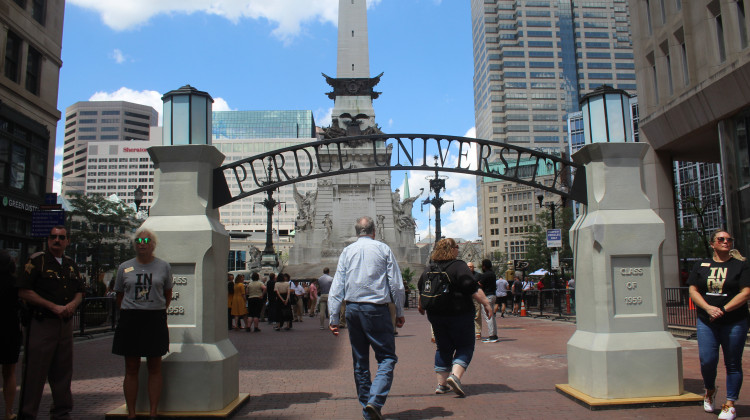
House Bill 1182 would require school board candidates to identify with a political party and include that designation on the ballot.
(WFIU/WTIU file photo)School board candidates would be forced to declare a political party under legislation Indiana lawmakers are considering, but everyone who testified at the bill's first hearing Tuesday opposed the bill.
House Bill 1182 would require school board candidates to identify with a political party and include that designation on the ballot. Candidates would be able to list themselves as "Independent" if they don't identify as either a Republican or Democrat. The bill does not limit the number of candidates from each party who could be included in those races.
The bill's author, Rep. J.D. Prescott (R-Union City) said he believes the change would give voters more insight into candidates' beliefs and character.
"When I look at Republicans or Democrats I think you can tell the difference between financial responsibility and moral character in some cases," he said.
But public comment from school board members, education lobbying groups and other Hoosiers from across the state pushed back on that idea.
The Indiana School Boards Association suggested if communities want that change, they should make that decision locally. ISBA and others said party affiliation could actually reduce voters' desire or willingness to learn more about candidates and engage with school board races at the ballot box.
Many people said they worry it could shrink the pool of people who want to or can run for school board.
Executive director of ISBA Terry Spradlin pointed out that the Hatch Act prohibits federal employees or military service members from running for or serving in partisan political offices, so several currently serving school board members would be barred from office under the proposed legislation.
"Federal guidance is: if one person is identified as Republican or Democrat, it becomes a partisan election, therefore any candidate on the ballot would be considered running for a partisan office," he said.
Others pointed out that most school board members want to avoid partisan politics as they govern schools and work to support students who don't have political affiliations.
Brandon Kroft, a school board member for Duneland School Corporation, said he's a proud Republican, but explosive political tensions that some school boards have encountered during the pandemic are already driving people away.
"Forcing a school board member to put either an 'R' or 'D' in front of their name is going to further shallow the pool," he said.
Kroft and others said they worry the bill could also result in partisan picks for school administrators or other key decisions if candidates receive party-affiliated campaign funds.
House Elections and Apportionment Committee chair Rep. Tim Wesco (R-Osceola) is a co-author of the legislation. He and other Republicans on the committee questioned the notion that partisan school board elections would have the negative effects suggested by those who testified.
But some who spoke at the hearing also said they see the proposal as something that runs counter to past and present efforts by lawmakers to reduce political tension around Indiana's K-12 schools.
In 2017, lawmakers passed legislation to make the state's top education official appointed by the governor rather than elected by voters. Wesco, who also co-authored that bill, said his motivation to support that shift was to find "greater cohesion" among the Indiana Department of Education and State Board of Education – which is largely appointed by the governor. The legislation came after years of tension between former Superintendent of Public Instruction Glenda Ritz, a Democrat, and former Republican Gov. Mike Pence.
Lawmakers are also this year considering legislation that would limit how teachers talk about certain political or social issues — something supporters say will help remove political or ideological influence from classrooms.
According to ISBA, only three states in the country have partisan school board elections, and four others use a "hybrid" system. Spradlin said the group would support changes to the bill that would make political party identification in school board elections a locally decided, optional issue rather than a statewide requirement if the legislation moves forward.
The committee did not vote on the bill.
Contact reporter Jeanie at jlindsa@iu.edu or follow her on Twitter at @jeanjeanielindz.
 DONATE
DONATE






 Support WFYI. We can't do it without you.
Support WFYI. We can't do it without you.